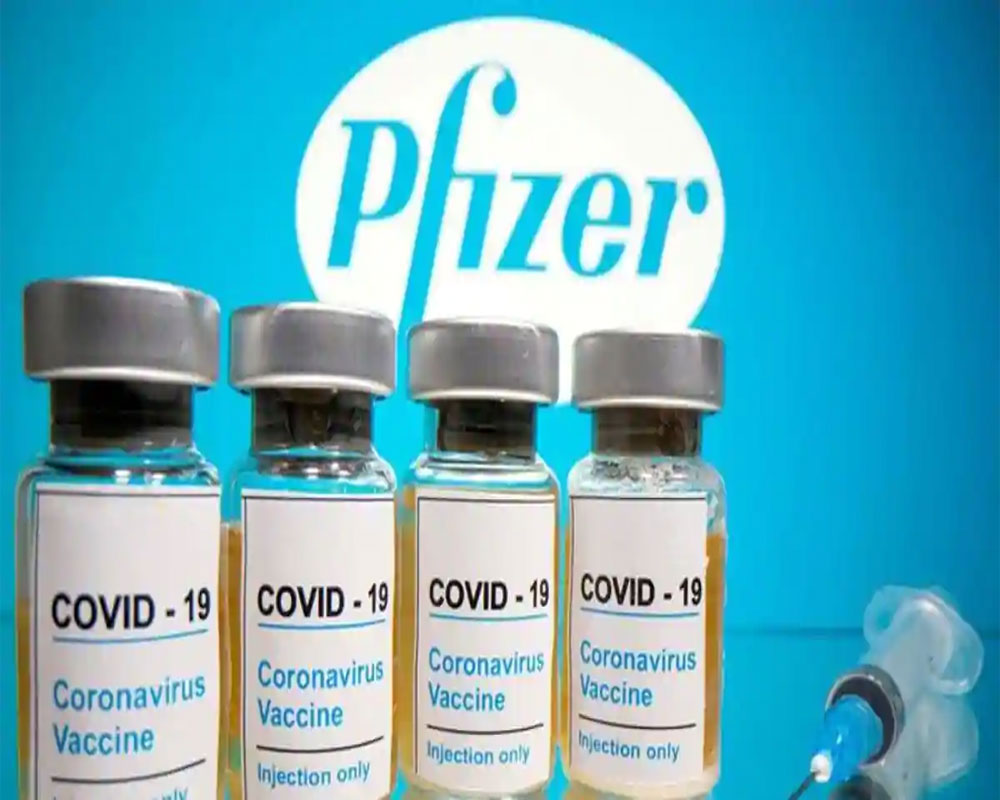The UK government on Monday said that the Medicines and Healthcare products Regulatory Agency's (MHRA) is reviewing data from Pfizer/BioNTech to determine whether its COVID-19 vaccine meets "robust" standards of quality, safety, and effectiveness.
The joint vaccine, produced by American pharmaceutical giant Pfizer and German biotech firm BioNTech, had recently claimed to be 94 per cent effective in protecting people over 65 years old from COVID-19, with trials suggesting it works equally well in people of all ages, races and ethnicities.
“Today, we have renewed hope that we are on the brink of one of the most significant scientific discoveries of our time, as we reach the crucial last stage to finding a COVID-19 vaccine,” said UK Business Secretary Alok Sharma.
“While this news is a cause for celebration, we must make sure that this vaccine, like all new medicines, meets standards of quality, safety, and effectiveness. I urge the public to be patient while we wait for regulators to do a thorough assessment. Finding a vaccine is not going to end the pandemic overnight, but we are hopeful of being one step closer to defeating this terrible virus,” the Indian-origin minister said.
The UK is expected to receive a total of 40 million doses by the end of 2021, enough to vaccinate up to a third of the population, with the majority of doses anticipated in the first half of next year.
“This is another important step on the road to recovery. We must now allow the MHRA's renowned teams of scientists and clinicians to make an independent assessment of whether it meets their robust standards of quality, safety, and effectiveness,” said UK Health Secretary Matt Hancock.
“If approval is granted, the NHS [National Health Service] will be ready to deliver. The NHS has vast experience in delivering widespread vaccination programmes and an enormous amount of work has taken place to ensure we have the logistical expertise, transport and workforce to roll out a vaccine according to clinical priority, at the speed at which it can be manufactured,” he said.
The UK government stressed that the COVID-19 vaccine will only be authorised for supply by the UK's independent regulator if it meets strict standards of quality, safety, and effectiveness, and if they are satisfied the vaccine can be consistently manufactured.
While the final deployment plans will depend on decisions by regulators, preparations are underway for the NHS to be ready to begin vaccinating as soon as the first vaccine is approved and delivered to the UK.
The Department of Health and Social Care (DHSC) said that general practitioners (GPs) have already been signed up to take part in the programme when an appropriate vaccine is ready and dozens of hospitals across the UK will lead coordination on behalf of neighbouring hospitals, community trusts and local health groups in vaccinating staff and other priority groups.
Several vaccination sites will also be set up across the country.
“We are moving ever closer to having the means with which to help end this pandemic but we must wait for the outcome of the MHRA assessment before we will truly know if we have our first approved vaccine,” said Kate Bingham, the Chair of the UK's Vaccines Taskforce.
“Irrespective of the outcome, which we all hope will be positive, this is a tremendous day for science. It is testament to the Herculean efforts of the scientific and biopharmaceutical community and it makes me immensely proud,” she said.
The MHRA is the UK's independent regulator, hailed as a globally recognised institution for requiring the highest standards for quality, safety and effectiveness.
The UK government says it has purchased seven different types of vaccine in advance and procured 355 million doses.
This includes 100 million doses of the vaccine being developed by AstraZeneca and the University of Oxford, which reported efficacy in its Phase 3 trial earlier on Monday.
Pfizer has said that based on current projections it expects to produce globally up to 50 million of its vaccine doses in 2020.
The vaccine will be manufactured in BioNTech's German sites, as well as Pfizer's manufacturing site in Belgium.
The UK government said that it remains confident that the cold supply chain needed to distribute the Pfizer/BioNTech vaccine will not cause any problems or delays.
When the vaccine is stored in a fridge, it has an effective life of up to five days at temperatures of 2 to 8 degrees, which will allow it to be easily stored at distribution centres.

















